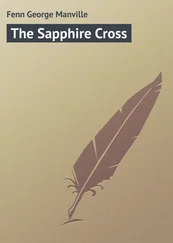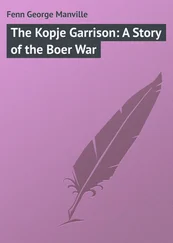George Fenn - The Story of Antony Grace
Здесь есть возможность читать онлайн «George Fenn - The Story of Antony Grace» — ознакомительный отрывок электронной книги совершенно бесплатно, а после прочтения отрывка купить полную версию. В некоторых случаях можно слушать аудио, скачать через торрент в формате fb2 и присутствует краткое содержание. Жанр: foreign_prose, на английском языке. Описание произведения, (предисловие) а так же отзывы посетителей доступны на портале библиотеки ЛибКат.
- Название:The Story of Antony Grace
- Автор:
- Жанр:
- Год:неизвестен
- ISBN:нет данных
- Рейтинг книги:3 / 5. Голосов: 1
-
Избранное:Добавить в избранное
- Отзывы:
-
Ваша оценка:
- 60
- 1
- 2
- 3
- 4
- 5
The Story of Antony Grace: краткое содержание, описание и аннотация
Предлагаем к чтению аннотацию, описание, краткое содержание или предисловие (зависит от того, что написал сам автор книги «The Story of Antony Grace»). Если вы не нашли необходимую информацию о книге — напишите в комментариях, мы постараемся отыскать её.
The Story of Antony Grace — читать онлайн ознакомительный отрывок
Ниже представлен текст книги, разбитый по страницам. Система сохранения места последней прочитанной страницы, позволяет с удобством читать онлайн бесплатно книгу «The Story of Antony Grace», без необходимости каждый раз заново искать на чём Вы остановились. Поставьте закладку, и сможете в любой момент перейти на страницу, на которой закончили чтение.
Интервал:
Закладка:
“Why, here you are then, young ’un,” he said. “I thought old Blakeford had carried you off. Lookye here! you’re just right. I’m going to have a bit of wittles down here in peace, and you’ll join in.”
As he unfastened the bundle handkerchief and displayed a pork pie and a small loaf, he took a couple of table-knives from his tail-pocket.
“Borrowed,” he said, holding them up. “They’re a part of lot hundred and forty-seven. Stop a moment, let’s make sure.”
One hand dived into the breast-pocket of his old coat to bring out a dirty catalogue, leaf after leaf of which he turned over, and then, running a dirty thumb down one page he read out:
“Lot hundred and forty-seven: sixteen black – No, that ain’t it. Here it is, young ’un. Lot hundred and fifty-seven: two dozen and seven ivory balance-handle knives. Them’s them, and they won’t be none the worse for my using on ’em.”
Mr Rowle’s intentions were most friendly, but I could hardly eat a mouthful, and I was sitting watching him making heavy onslaughts upon the loaf when I heard Mr Blakeford’s voice calling me, and I started up, feeling as if I must run away.
“What are you up to?” said Mr Rowle, with his mouth full.
“Let me go,” I cried excitedly. “Let me run somewhere.”
“Gammon! Why, what for? You go out like a man and meet him, and if he gives it to you again, why, there, if I was you I’d take it like a man, that I would.”
I hesitated for a moment, and then took my rough friend’s advice by going out into the garden, where I found Mr Blakeford with a black bag in his hand.
“Take that,” he said harshly, and threw the bag towards me.
I was taken by surprise, caught at and dropped the bag, which burst open, and a number of papers tied with red tape fell out.
“Bah! you clumsy oaf,” he exclaimed angrily. “There, pick them up.”
I hastily stooped, gathered them together, and tremblingly replaced the packets in the bag, and as soon as it was closed followed my new master towards the gate, through which he passed to where a man was holding a thin pony attached to a shabby four-wheeled chaise.
“Jump up behind,” he said; and I climbed into the back seat, while he took the reins, got into the front, and fumbled in one pocket. “Here, catch!” he cried to the man, as he gave the reins a shake. The pony started off, and we had not gone a dozen yards before something hard hit me in the back, and turning sharply, I saw one of the big old-fashioned penny-pieces fall into the road, while the man who had thrown it after us was making a derisive gesture at Mr Blakeford, by which I concluded that he was dissatisfied with the amount that had been given him.
“Sold badly, very badly,” Mr Blakeford kept muttering, and at every word he gave the reins a jerk which made the pony throw up its head; and so he kept on muttering during our four-miles ride into the town, when he drove into a little yard where a rough-looking man was waiting, threw him the reins, and then turned to me.
“Jump down, and bring that bag.”
I jumped down, and as I did so leaped aside, for a large dog rushed out to the full extent of his chain and stood baying at me, till Mr Blakeford gave him a kick, and he disappeared into a kennel that had once been green. I followed the lawyer through a side door and into a blank-looking office cut in two by a wooden partition topped with little rails, over which hung old and new posting-bills, many of which papered the wall, so that look which way I would my eye rested on, “To be sold by auction,” “Estate,” or “Property,” in big black letters.
On one side of the partition were a high double desk and a couple of tall stools; on the other some cocoa-nut matting, a table covered with papers, a number of shelves on which stood black-japanned boxes, each of which had upon it somebody’s name or only initials in white letters, with perhaps the word “Exors.” after them; while on the chimney-piece were a letter-weigher, two or three large ink-bottles, and a bundle of quill pens.
It was growing dusk, and Mr Blakeford struck a match and lit a gas-jet over the fireplace, just in front of a yellow-looking almanack; and now I could see that the place was one litter of papers, parchments, and dust, save at the end, which was occupied by a bookcase full of great volumes all bound in leather about the colour of Mr Rowle’s skin.
“Sit down there,” he said shortly, and he pointed to one of the tall stools by the great desk; and as I climbed upon it he picked up the bag I had placed upon the desk, threw it upon the table, and walked out of the place.
“Like a man – take it like a man,” I said to myself as I recalled Mr Rowle’s words; and, pressing my teeth tightly and clenching my fists, I sat there fighting down the depressing feelings that came upon me in a flood, and wondering what I should have to do.
My musings were interrupted by the loud entry at the end of about half an hour of a cross-looking servant-girl, who banged a small tray containing a mug and a plate of bread and butter down before me.
“There’s your tea,” she said roughly; “and look here, I’m not going to wait on you. Bring the mug to the kitchen when you’ve done, and you’ll have to fetch it in future.”
I looked up at her very wistfully as she scowled at me, but I did not speak.
“Sulky, eh?” she said. “You’ll soon get that taken out of you here, I can tell you.”
With these words she whisked herself out of the office, the swing-door creaked dismally and banged behind her, and I was left to enjoy my meal.
At first I felt that I could not touch it, but I was faint and hungry, and after a few mouthfuls a boy’s young healthy appetite asserted itself, and I drank all the mean thin tea and finished the bread and butter.
Then I remembered that I was to take the things back to the kitchen. Where was the kitchen, and dare I leave that stool without Mr Blakeford’s orders?
I felt that I dare not, and therefore sat there patiently gazing about the room, my eyes resting longest on those bills which told of sales of furniture, as I wondered whether those who had belonged to the furniture had died and left a son alone in the world, as I seemed to be just then.
There was a clock, I found, in one corner – an old Dutch clock – that ticked away in a very silent, reserved fashion, giving further every hour a curious running-down noise, as if it were about to strike; but though I watched it patiently as the minute-hand passed on, it never fulfilled the expectations given, but confined itself to its soft subdued tick, tick, tick, tick , hour after hour.
Seven, eight, nine, ten had been marked off by that clock, and still I sat there, waiting, and wondering whether I was to sleep there as well as to have my meals; and then I heard a door bang, the sound of a footstep, and with a great tin candlestick in his hand Mr Blakeford entered the room.
Chapter Four.
I Become a Lawyer’s Clerk
“This way!” he said abruptly, and there was a curious look in his face that I could not understand. “Here, hold this,” he cried, thrusting the candlestick into my hand; and I held it trembling as he crossed unsteadily to the gas-jet, turned it down, and then strode out of the office.
“There!” he said, opening a door, “up there; and get down in good time. You’ll have to clean the boots and things.”
“Up there” was up a flight of steps which led into a low sloping-ceiled chamber that had been evidently meant for a lumber-room, but had now been fitted up with an old stump bedstead with a coloured counterpane, a little corner washstand with a cracked jug, a strip of carpet, and a three-legged painted chest of drawers, which had gone down at one corner, and left a corresponding leg slightly raised in the air.
Читать дальшеИнтервал:
Закладка:
Похожие книги на «The Story of Antony Grace»
Представляем Вашему вниманию похожие книги на «The Story of Antony Grace» списком для выбора. Мы отобрали схожую по названию и смыслу литературу в надежде предоставить читателям больше вариантов отыскать новые, интересные, ещё непрочитанные произведения.
Обсуждение, отзывы о книге «The Story of Antony Grace» и просто собственные мнения читателей. Оставьте ваши комментарии, напишите, что Вы думаете о произведении, его смысле или главных героях. Укажите что конкретно понравилось, а что нет, и почему Вы так считаете.












